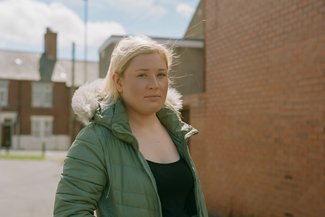
Multiple Disadvantage in Greater Manchester
Calls for all local authorities in Greater Manchester to work together to ensure the most marginalised women are included and involved in its Covid-19 recovery plans.

4 Mar 2021
A new briefing by women’s rights charities highlights that over 60,000 women and girls in Manchester have experienced extensive violence and abuse in their lifetime. It calls for all local authorities in Greater Manchester to work together to ensure the most marginalised women are included and involved in its Covid-19 recovery plans.
The briefing, led by women’s charities Agenda, the alliance for women and girls at risk and AVA (Against Violence and Abuse) warns that women and girls facing disadvantage in Manchester have been hardest hit during the coronavirus outbreak. The pandemic has put even more women and girls at risk, and further deepened inequality. It highlights that across Greater Manchester:
The organisations, AVA and Agenda say that leaders in Greater Manchester have a unique opportunity to make profound and long-lasting change to the lives of women and girls most at risk in society through its new Greater Manchester Strategy.
Allocation of specific services for women, improved data collection, co-production with women with lived experience, increased funding for specialist services and multi-agency working are just some of the recommendations to ensure women are given the help they need coming out of this pandemic.
The organisations point to strengths in Greater Manchester’s response to date, including taking rapid action to support those rough sleeping during the first national lockdown. They call for the Greater Manchester Combined Authority to act with similar drive and harness opportunities to build on existing good practice in the area to ensure the most disadvantaged women are not further impacted by the pandemic.
Donna Covey, CEO of AVA said:
“Women and girls experiencing multiple inequalities are some of the most at risk in our society. Lockdown has had dire consequences for women and girls. They have faced higher rates of poor mental health, domestic violence cases have soared, and many have been plunged into poverty. Something must be done.”
Jess Southgate, CEO of Agenda said:
“Our work in Greater Manchester has shown that systems and services currently do not work for the most disadvantaged women, with too many falling through the gaps in support. Local authorities have real power to make a difference and transform their response. Rebuilding after the pandemic provides a key opportunity to do things differently, co-ordinating and encouraging all parts of the system to work together better to transform women’s lives.”
Caroline Howe, Policy & National Programmes Manager for Lloyds Bank Foundation for England & Wales said:
"As the pandemic has deepened it has further intensified the challenges experienced by women and girls facing multiple disadvantage, leaving many in a critical situation. It is vital that local authorities across Greater Manchester work with specialist charities to ensure the right strategies are developed and services funded and provided, so that all women and girls get the help they need to stay safe and rebuild their lives. At Lloyds Bank Foundation we have been pleased to fund this report and hope it will be a spur to lasting change.”
The briefing highlights that around 60,000 women and girls in Greater Manchester have experienced extensive violence and abuse during their lifetime. They are more likely to live in poverty, over half of them have a mental health problem, one in five has been or is homeless and one in three face problems with alcohol. However, they often find themselves bounced between services because of the complexity of issues they face.
Greater Manchester must have women and girls at the heart of its response to Covid to ensure those at the sharpest end of inequality are supported and protected and able to move on with their lives.